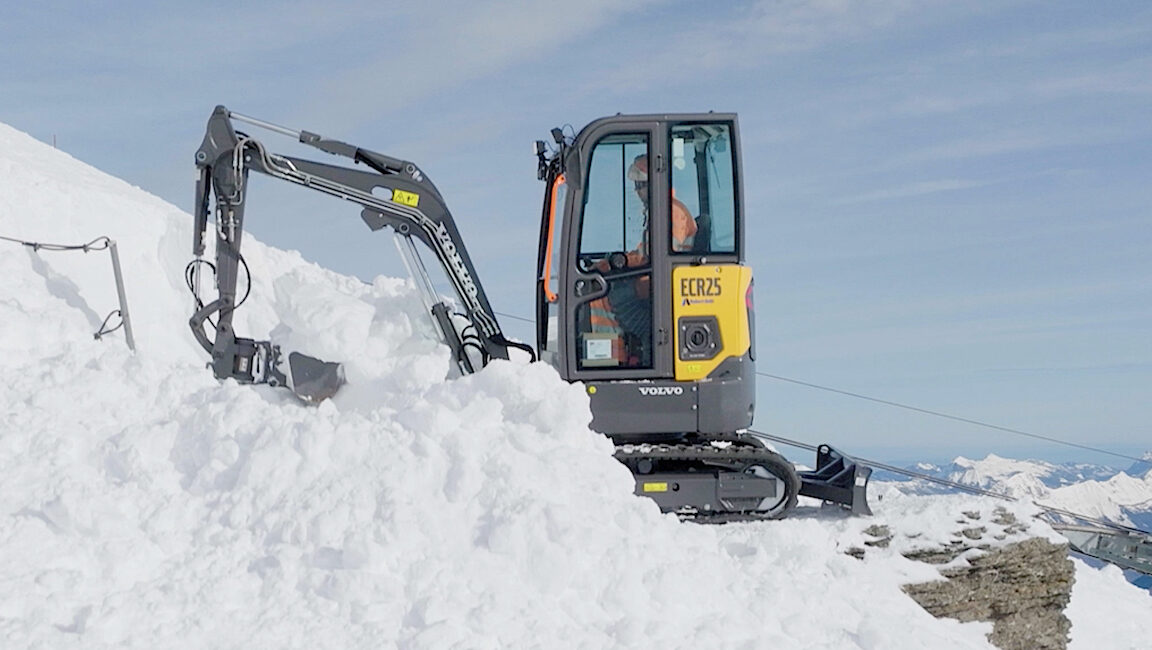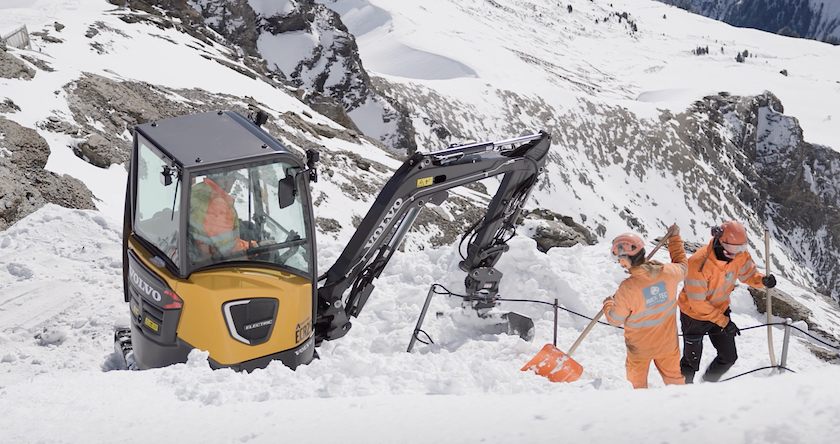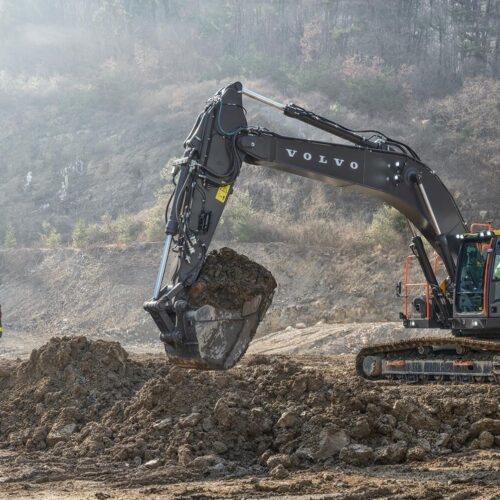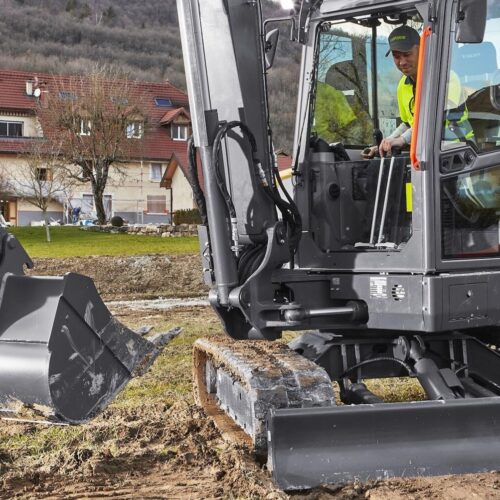How Electric Heavy Equipment Performs at High Altitudes
Do you ever work at higher elevations? If so, it’s important to know that battery electric construction equipment tends to perform better at higher altitudes compared to diesel combustion engines. […]


Do you ever work at higher elevations? If so, it’s important to know that battery electric construction equipment tends to perform better at higher altitudes compared to diesel combustion engines.
A naturally aspirated IC engine will lose 3% of power for every 1,000 feet of elevation gain over sea level. The use of a turbocharger can help offset that power loss by forcing more air into the engine, but even turbo-charged engines will experience losses at altitude. For example, a turbo-charged engine at 6,000 feet above sea level will lose a little over 9% of power, and we’ve observed as much as 20% in some cases.
That loss in power is due to several key factors:
- Oxygen Availability: At higher altitudes, the air density decreases, resulting in reduced oxygen availability. Diesel engines rely on the intake of air and oxygen for combustion. With lower oxygen levels, diesel engines may experience reduced power output and decreased efficiency. Electric machines, however, don’t rely on oxygen for their operation — they use stored electricity to power their motors and are therefore less affected by the thinning air at high altitudes.
- Power Consistency: Diesel engines can sometimes experience power loss at higher altitudes due to reduced air density. The decreased oxygen levels can affect the combustion process, resulting in lower power output and reduced torque. Electric machines, on the other hand, deliver consistent power and torque regardless of the altitude.
- Noise and Emissions: Diesel engines produce noise and emissions including particulate matter, nitrogen oxides (NOx) and carbon dioxide (CO2). At higher altitudes, these emissions can have a more significant impact due to reduced dispersion. Electric machines produce zero tailpipe emissions and operate silently, making them more environmentally friendly and suitable for projects in environmentally sensitive areas like mountain regions and parks.

- Maintenance and Operating Costs: Diesel engines typically require regular maintenance including fuel filter changes, oil changes and so on. At higher altitudes, the engine’s performance may be further affected, meaning additional maintenance might be needed. Those costs can quickly add up. In contrast, electric machines have fewer moving parts and don’t require the same level of maintenance. They also don’t rely on diesel fuel, eliminating the need for refueling and the associated costs.
If you’re concerned about machine charging in remote locations, we offer a range of heavy equipment charging solutions that can keep your electric machines running strong every day no matter where the jobs take you.
With all that said, both diesel-powered and electric construction equipment are suitable for work at higher altitudes. But if your jobsite requires low or zero emissions — or if you simply want to reduce noise and disturbance to those around you — electric offers superior performance plus environmental benefits. They’re cost-effective alternatives worth considering.
Learn about other benefits of electric construction equipment and hear from machine owners on our electric resource center.
By Justin Zupanc
Categories: Construction Equipment, Electric Equipment, Fuel Consumption, Insights, New Equipment, Sales Equipment

